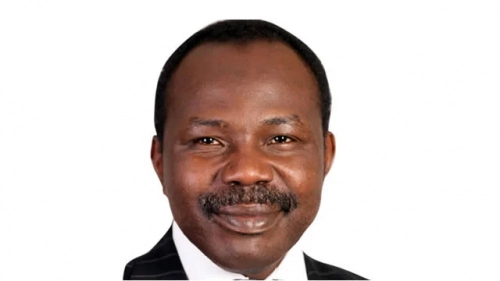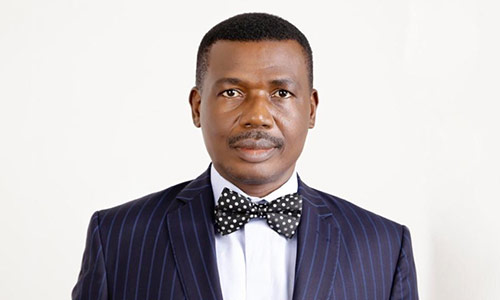Judiciary And Executive Romance: A Revisit

By Muiz Banire SAN
When, on the 1st of June, 2023, I wrote on the above subject, condemning and discouraging the often unholy romance between the judiciary and the executive, little did I know that I would have cause to revisit the issue, at least, not in the nearest of time. Interestingly, here I am within a period of a few weeks after, further interrogating the subject. Again, it was not a voluntary thing to so do, more so when I have the analysis of the Oransaye Report pending, which I consider of urgent importance. As ordained by God, however, I stumbled on a reaction to the discourse on a platform, which I suspected must be from a member of the Bench.
The response goes thus: “With the greatest respect to the learned silk, the swearing and inauguration of a President and Vice President or a Governor and his Deputy on 29/5/2023 or any other day is a judicial function/activity and the judiciary cannot prevent the politicians or any member of a political party from attending such an event. The same way we cannot prevent any member of a public from attending a judicial activity such [a] court session or a valedictory service, among others. At such an occasion, there is no executive by an extension no President or Vice President or Gov or Deputy Gov. It appears that the learned silk is of the erroneous belief that there is an executive arm of government in such an occasion. For the fact that political parties’ actors dominate such an event, it is not a reason to conclude that it is not a judicial event or activity.
“We cannot prevent such a person to be inaugurated not to come with his family, friends and members of his political party to such an occasion. I do not, therefore, see any reason the judiciary, by an extension the CJN or HCJ with the judges should not take ownership of such an event. What matters is how we conduct ourselves in such an event. Learned silk cannot compare the event where the former HCJ of Lagos State turned down the request of a former Gov to welcome former Head of State to the swearing in and inauguration of a Gov or Deputy Gov. With greatest respect to him, he missed the point”.
I have chosen to quote in extenso and verbatim the intervention of the judge so as not to be charged with misquoting the author. Let me commence by appreciating the bold intervention and the courtesy extended to my person, notwithstanding the presupposition by the author that I might not ordinarily come across the intervention. Having disposed of this courtesy, I start by concurring with My Lord that, truly, the occasion of swearing in a Governor or President and their running mates ought to be a judicial event, but in reality, is it? ME THINK NOT! I have always been an apostle of pragmatism and I always crusade same in our desire to have a functional and progressive society. In the first instance, swearing-in events are not one and the same with the ceremonies that follow.
While it may appear to cursorily look at such, they differ both in content and consequences. The swearing-in ceremony of an elected or appointed official involves simply the formal administration of oath of office on the person and nothing more. Inauguration celebration that follows on the other hand is simply a ceremonial event. While the former is solemn, the latter is a loud event. Without the administration of oath, the public officer cannot assume the office, while the lack of the attendant ceremony deprives not the public officer of the official authority to perform. Finally, for the purpose of the swearing in of the elected executive officials, the event ought to be strictly a judicial function constitutionally involving the Chief Judge or any other relevant head of court assigned for that purpose and not all the judges.
This is expected to be performed in an atmosphere devoid of any social ceremony. In fact, I will advocate that it ought to be in the court house. As remarked above, it is not an event that ought to be open to the public but that strictly concerning the relevant head of court and the elected official. If other judges, out of solidarity, now choose to identify with the officiating judicial officer, so be it, but it ought not to be a necessity. Without unveiling the identity of the concerned official, I recall an instance recently in which a Governor took the oath of office within the living room of his official apartment due to a threat of disruption from certain quarters. The only complimentary thing done was to air the recording signifying the conduct of the administration of the oath to the public. The absence of the public ceremony never deprived the event of the sanctity it is constitutionally accorded. I think recently also, a Governor of a state demonstrated the same solemnity by just taking the oath without ceremony and proceeding to perform his functions.
This is how it ought to be as opposed to the festival now associated with it as if, without such, the administration of oath had not taken place. Once the oath is administered, the judicial component or function terminates. The rest is political-cum-social event. If, however, the event is chosen to be combined with the inauguration, all that is mandated by the law, tradition and must be the pattern, is for the relevant head of court to administer the oath and depart. Honestly, I still do not see the rationale behind the solidarity of the presence of other judges. If anything, such solidarity should be limited to the administrative judges, where they exist. Any other thing after is devoid of any legitimacy. It is an optional thing. The import of this analysis is to demonstrate that the celebration following the swearing in is not a judicial function. The events featuring thereafter and in which judges are participating are at their own discretion and, I dare say, risk. This is what is meant when in the street lingo they say ‘you are on your own’. As remarked in the originating column, should any adverse thing happen to any of the judges at that event, the public would ask, what was his or her legal role at such event? Furthermore, likening the court sitting to administration of oath event for political officials, respectfully, is the actual point missing.
Public sitting and access of a court is a constitutional imperative, unlike that of the administration of oath. While it is true that swearing-in ceremony of new Senior Advocates of Nigeria by the Chief Justice of Nigeria or valedictory sessions of retiring judicial officers often presided over by the head of the particular court, is a court sitting, which is required to be solemn and both judges and lawyers attending are required to be robed, swearing-in ceremonies of political office holders are not court sittings in which members of the Bar are required to be robed or be in attendance. Besides, there is the mandatory requirement of conformity with protocols which is lacking at the inauguration. You cannot be applauding anyone at a valedictory, as an example. In further appreciation of the implication of such indiscretion is the command control of the event?
Is it the judiciary officials that are in charge of the event/ceremony, certainly not. In fact, most times the judges are poorly seated at the events. They are relegated to a remote side of the venues after the politicians, and possibly the ‘state boys’. Do not ask me who are those? In fact, political chieftains and old members of the cabinet are more strategically located and better treated and recognized than the judges. Should it be truly a judicial event, the judiciary ought to be in control. Is the author aware that the judiciary is only not in control of the event but apologetic most times at such events.
Olohun o ni fa aso aponle wa ya o (may our robe of pride not be rent asunder). Judicial officials need to respect themselves. If truly, as posited by My Lord that it is a judicial event, then the judiciary should be able to tame the surge of the politicians and order the events. Again, I reinstate, the judicial function does not exceed the administration of the oath. The presence or absence of family, friends and associates is not sine qua non to the validity of the oath administered. Such dignitaries are meant to grace the inauguration ceremony generally and not necessarily the conduct of the administration of the oath. During swearing-in ceremonies of Senior Advocates of Nigeria, while the inaugurants and other senior lawyers are allowed into the hallowed chambers, the members of the public, the family and friends of the celebrators, inclusive, are kept outside the chamber where they may be able to watch the solemn ceremony on a tele broadcaster. As indicated earlier, the swearing-in ceremony and the inauguration celebrations are different events. At the public celebration level, even all the political miscreants and misfits in the society can grace same.
There is also the noticeable lacuna in the conclusion of the author that at the point of ‘inauguration’, there exists no executive. This is again not true. Nature abhors vacuum, and at the material time, there is in existence the executive represented by the Civil Service as Chapter VI of the Constitution that deals with offices that make up the Executive contains not less than ten offices ranging from the President, the Vice President, the Attorney General, the Auditor General, the Head of Civil Service down to the Civil Service itself. It is either the re-elected executive office whose tenure is still extant or the outgoing executive whose mandate is still active until the swearing in of the newly elected official that occupies the office. No vacuum at any time. His Lordship therefore erred in law or was misdirected in fact when His Lordship concluded that there was no executive in place at the time of swearing-in ceremony. . Let the relevant head of court administering the oath only take ownership of this event and not the inauguration celebrations that follow. All the sermons contained in the originating edition of this conversation are simply geared towards recognizing the sacred status of judicial officers and to disabuse the minds of prospective litigants against the state from perceiving the two, the executive and the judiciary, as one and the same. Justice, as I have always said, is rooted in confidence, birthed by perception. The judiciary cannot afford to continue flaunting her relationship with the executive in the public glare. It is a dangerous trend that must be eschewed.



